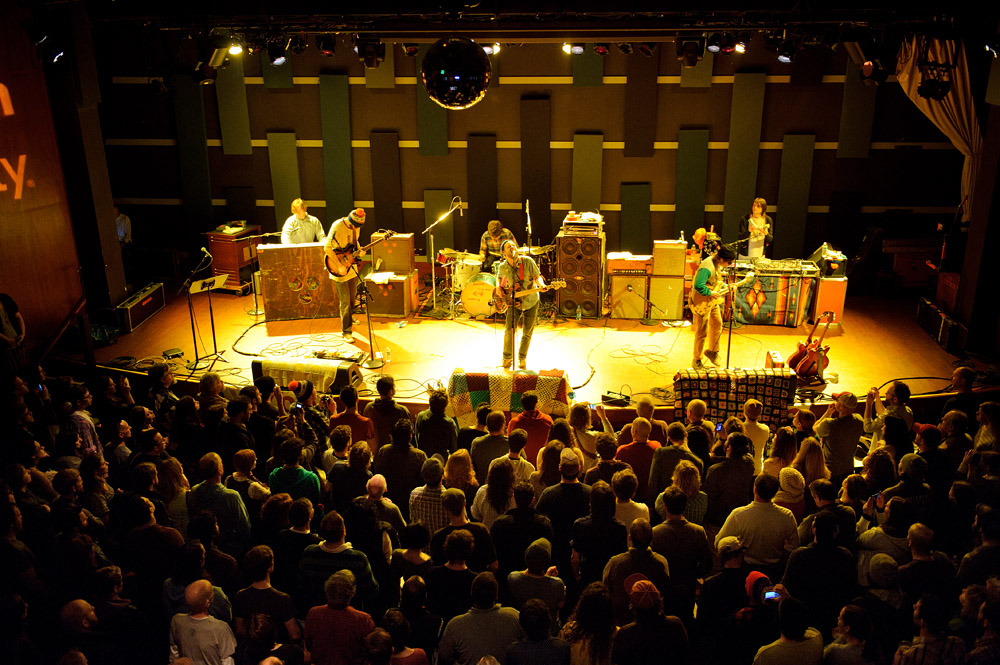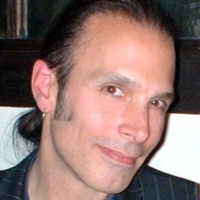When COVID-19 hit in March, closing all non-essential businesses, it was live arts, music and comedy venues that would wind up hurting more than most, especially considering the beyond-billion-dollar-a-year peak that live music had reached in 2019.
Unlike restaurants, permitted do takeout and outside seating, live venues that didn’t serve food couldn’t move a muscle. Because live venues had to completely shutter without staff, most couldn’t apply for PPP loans. Unless they had access to a large landmass with drive-in opportunities, they were completely screwed. And while COVID-19 affected large-scale, international-operating promoters such as Live Nation and AEG that own and operate venues in the area, it was independent venues and promoters that were stuck in freefall without a net, without corporate monies or stock options upon which to lean, or hopes to open – even with social distancing options – as their usual audiences live in fear of close gatherings without a vaccine in sight.
Whether it’s the effect on local economies and tax bases or the ecosystem it serves and is served by, it, the art of independent live music and comedy venues – the first to be closed, the last to open – is hurt badly, and could be damaged irreparably, long after doors open. If they get the chance to open. This live arts business model is on a respirator, given – in some cases – six months to live as it is carrying a 90 percent revenue loss with closure well into 2021 due to safety concerns and public fears posed by large gatherings. Without support from Congress, 90 percent of independent venues in the U.S. will need to close their doors forever.
As of this week, it’s five-and-a-half-months, and counting.
Countering this doom-day proposition, one organization, the National Independent Venue Association, and two initiatives, (Save Our Stages# and The RESTART Act, were started to stave off the wolves. One who started NIVA and sits as its secretary is Hal Real, founder of World Cafe Live. NIVA, composed of 2,000 spaces and promoters, states its mission is to “preserve and nurture” the wounded ecosystem of independent live music venues and promoters. This couldn’t come a minute more quickly, as beloved venues such as Stella’s in Cleveland, Barracuda in Austin, and Great Scott in Boston have shuttered permanently.
Then there is the bipartisan S. 4258, the Save Our Stages Act (introduced by Sens. John Cornyn (R-TX) and Amy Klobuchar (D-MN)), and S. 3814/H.R. 7481, the RESTART Act (introduced by Sens. Todd Young (R-IN) and Michael Bennet (D-CO), in the Senate and Congressmen Jared Golden (D-Maine) and Mike Kelly (R-PA)) in the House.
Their twin goal is to make grants to eligible venues equal to the lesser of either 45 percent of operation costs from calendar year 2019 or $12 million, while authorizing the appropriation of $10 billion-plus for the grant program. Sen. Chuck Schumer (D-NY) last week made a show of supporting these initiatives with LCD Soundsystem’s James Murphy by his side. The billion dollar ideas are good. What’s bad is that Congress is on recess through August, while busy with bailing out the USPS.
Turning to the uniquely local side of the government ledger, Mayor Kenney stated, Aug. 20, that Philly performing arts venues can open Sept. 8. Health Commissioner Thomas Farley, however, threw the wettest of blankets by saying that capacity would be limited to 25 people, and live venues are prohibited from serving food and drinks on site.
“Even if you have a giant auditorium, you can put no more than 25 persons inside,” said Farley in what may have been the second-biggest slap in the face to local venue owners and promoters alike – the first slap being C-19’s all-venue shutdown around March 10.
“I understand the city’s desire to say more businesses are re-opening, something that everyone wants to happen, but, opening performance spaces for audiences of 25 patrons maximum, regardless of venue size, is not economically feasible – it would bankrupt us,” said Hal Real, WCL’s CEO and NIVA co-founder. “From a public health perspective, until there is a widely distributed and effective vaccine or a reliable instant test, it is not safe for our staff, artists, or guests to open places like ours that are all about bringing the community together for shared live music experiences.”
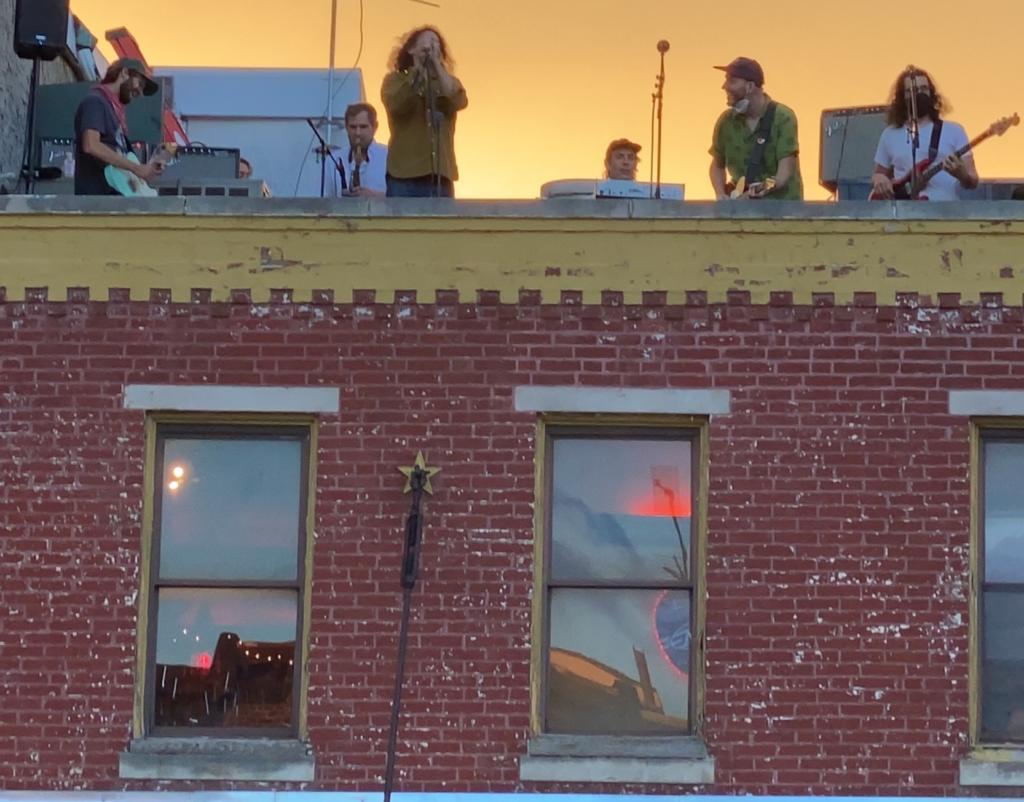
Mark Christman, executive/artistic director of Philly’s avant-garde, jazz-focused Ars Nova Workshop, offered perspective on the 25-person limit, whether it’s shows he’s brought to Johnny Brenda’s or Fringe HQ. “I can’t blame the city for protecting its citizens. We’re not seeing enough leadership in this department.”
Promoter Jesse Lundy of Point Entertainment took the laughable 25 entry limit one step further. “Operating with 25 can only work if you have your overhead reduced too,” stated Lundy. “Sadly, the concert industry is ‘just math.’ When you take the emotion out of your favorite bands and the experience of seeing them, the money and viability of being a concert promoter comes down to the simple equation of ‘revenue at the door + ancillary income (booze/food) vs. expenses of putting on the show.’”
Local venue owners and promoters (in the case of Union Transfer, Boot & Saddle and R5 Promotions’ Sean Agnew – both) let me in on the behind-the-scenes mess they’re in, and the new bond built when competition turns to camaraderie.
Shlomo Lipetz, VP of programming at Philly’s new-paint-smelling City Winery – busy developing his small chain venue’s retail wine program – paused to recall his still-new Winery’s last show.
“Joan Osborne, March 15,” he said. “I remember our back-and-forth, slowly coming to the realization that it may be our last show in a long time. Little did we know just how long.”
Unlike many live venues, City Winery was able to take advantage of PPP loans, and received its application’s full amount. “Unfortunately, we burned through most of the money, sadly, since we are still unable to open in any capacity,” said Lipetz. Unlike some live clubs, City Winery did serve its food menu curbside, but selling food out of its doors was not found effective and the program closed.
As City Winery is a small national chain with 1,300 employees (100 in Philly) 75 percent of all employees have been furloughed. Like most hospitality businesses, profit margins are slim and the ability to save for a rainy day limited. “At City Winery, we had enough to get through a few months if business dipped, but no business was, or is, fully-prepared to go from 100-to-0 overnight.”
Kerri Park, the GM at World Café Live, said this is business-as-usual for much of their peers in live music. “We were not financially prepared to be shut down for a prolonged period of time,” added Park.
One frustrating element for artists, audience and booker alike is bouncing venue shows postponed from March through September’s calendar, only to be postponed into 2021 or cancelled completely. City Winery, which puts on shows seven days a week and often books six months in advance, had countless gigs that had to be postponed. “We initially pushed shows into summer of 2020, then fall 2020, then first quarter 2021,” said Lipetz. “Now, most of the postponing shows are pushed to the second and third quarter of 2021.”
Independent venues have historically never been part of a larger organization. There was no real need for it nor was the infrastructure in existence. That changed with NIVA, when venues had to close with a need to share information, resources and what Lipetz called “a massive advantage of speaking in the same voice. It has been a massive help for venues across the country and provided a glimpse of hope,” he said of joining NIVA.
The theory that many venues will close by September is not just crying wolf, in Lipetz’s estimation. What hasn’t been helpful – despite NIVA – is the interaction with Philly’ safety measure-ers. “There have been no clear guidelines or road map, not in the federal level, but also in the state and city level,” said Lipetz. “In many states, the state and the city guidelines have conflicted.”
Park’s World Cafe Live is another venue serving a curbside take-out menu and benefitting from PPP loans through the CARES Act. Though it “provided a necessary lifeline,” the PPP’s limits were a clear indicator that WCL needed to make the needs of their industry known to legislators; “that even after WCL opens fully it will take at least six months for WCL staff to work its way back to the full slate of events they depend on to cover overhead.”
What Park recalled vividly about March 12 and 13 was the moment she pulled her staff together and let them know they would need to close. “My words got caught in my throat, and the weight of the unknown was about as heavy as it gets.”
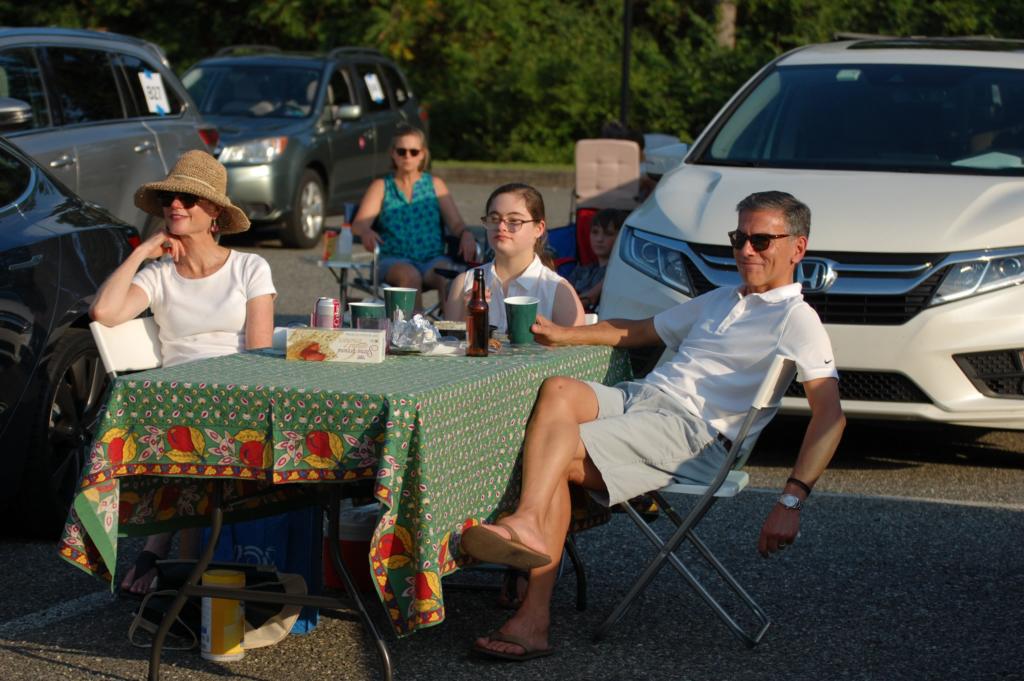
The night of WCL’s last live show, Friday the 13th’s Trace Bundy gig, “It was an un-replicate-able blend of gratitude and despair. It was as though everyone in the room was collectively recognizing, in real time, they were about to find out how much they had previously taken for granted. Guests and staff were silently looking to each other for answers to questions that were already universally understood to be unknown. I also have a very distinct memory of truly appreciating how good the sound was that night.”
When it comes to scheduling shows, WCL has had significant cancellations while being fortunate in being able to turn its 2020 calendar into its 2021 calendar. But, enough is enough. “I told my staff the other day that I’m done with trying to predict any kind of timeline anymore,” said Park. “I spent the first two months setting dates and mapping plans, only to rip them up and start over. We haven’t given up on 2020 yet, but we know that it’s going to be an uphill battle and a very different dynamic through the end of the year and beyond.”
With 100 people on WCL staff (20 full-time, 80 part-time), the pandemic dropped that number to 10. One significant gift was the “overwhelming outpouring of support that our guests showed with our Emergency Relief Fund for furloughed workers,” said Park who places those funds directly in the hands of WCL’s out-of-work team. As for staff that stayed, Park credited executive chef Rob Cottman with taking a measured approach as to how and when to pivot dining operations, and talent buyer Jeff Meyers.
Having access to Real has given Park perspective strengthening a foundation that will sustain an industry that can come out of the pandemic better than it was before. She is affected not just as an industry professional, but as a fan. “Almost my entire professional life has been devoted to WCL; you learn very quickly about music people that this isn’t what we do, it’s who we are. The fact that the very thing we hold most dear is on the brink of collapse is nothing short of devastating. It’s also an economic disaster because music venues closing will be a domino effect on local economies everywhere.”
“Working on podcasts about why improvisation matters, releasing recordings from our archives, presenting outdoor concerts … We’re eager to innovate. But as a venue-less organization in the time of COVID-19, I can’t say we’re eager to innovate indoors.”
– Mark Christman, executive/artistic director of Ars Nova Workshop
Park mentioned what Sean Agnew will later – the formation of PIVOT, Philadelphia Independent Venue Organizing Together – to unite for all-venues sake. “We’re not competitors. We’re one big independent family and know we have a powerful collective voice,” she said.
On the local political front, Republican Councilman David Oh, the fire starter of the local Music Industry Task Force, has made time for PIVOT, working to find a way for Philadelphia to help make sure it saves its venues. On the national front, Park is pleased by the bipartisan Save Our Stages efforts (“I have no doubt I could find something every single one of these legislators has said that I would 100 percent oppose on both a personal and professional front. However, I’m appreciative of the support they’re putting behind this issue”), and discouraged by the crisis-time summer recess.
Pointing out how Aug. 20’s announcement from the city in regard to 25-person capacities is further proof as to how unrealistic it is to re-open and that what is needed is financial support to stay closed, Park stressed that “venues need to stay closed right now, and we need money to stay closed. Please go to saveourstages.com to let your representatives know that you support live music and the role they play in our cities. Also – keep an eye out for more from PIVOT, because as our message develops we will need our fans to show up.”
Independent promoters are an equal part of the NIVA equation as a good half of its membership comes from those promoters who bring shows to diverse venues – indoors and outdoors.
Ars Nova’s Christman stated his jazz curation’s promotions have been put to good use during C-19. “Working on podcasts about why improvisation matters, releasing recordings from our archives, presenting outdoor concerts like ‘Bird Calls’ (Charlie Parker’s 100th birthday celebration August 28-29, at The Woodlands, 4000 Woodland Avenue), commissioning artists, building a mobile studio, organizing Milford Graves’ ICA exhibition (the drummer’s “A Mind-Body Deal” begins Sept. 25). We’re eager to innovate. But as a venue-less organization in the time of COVID-19, I can’t say we’re eager to innovate indoors.”
Ask Christman about membership in NIVA, and, “at the very least, we feel well-informed, part of a larger national community and conversation. I’m impressed with the momentum NIVA has been responsible for building and maintaining.”
Then ask Christman if he feels local politicos are working for the good of Ars Nova. “I don’t know about that. The City’s Office of Arts, Culture and the Creative Economy has been eliminated, making Philadelphia the only major U.S. city without such a thing. The Philadelphia Cultural Fund – something essential and trusted with paying big dividends – was reduced by nearly 70 percent. The OACCE and the Cultural Fund encouraged and supported creativity, which plays a vital role in how a place defines itself and is seen by outsiders. This will quickly dismantle the clusters of creative enterprises and individuals that feed and inspire even more creativity.”
After the initial weeks of being terrified, and working 12 hour days to move all of its dates, things have calmed into a space of quiet existential fear for Jesse Lundy and Rich Kardon – the team behind the boutique Point Entertainment that spreads its wealth of bookings to Franklin Music Hall, Mann Music Center, Ardmore Music Hall, Underground Arts, the Keswick and (with owner Donal McCoy), The Locks.
“The last show I was at was The Minks at the Dawson Street Pub on March 10,” said Lundy. “I got home that night and said, “Oh my God, I was in an enclosed place with other people and handled money without gloves…I’m going to die.” Not a good feeling.”
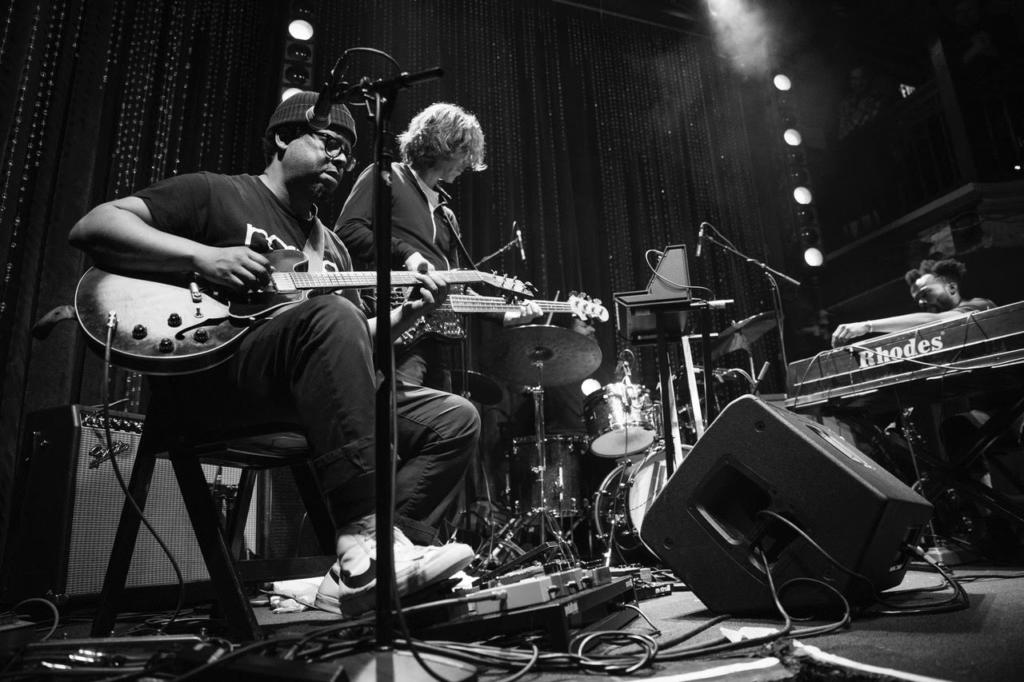
Also not a good feeling, without being able to take advantage of PPP loans as promoters, Point held fast by relying upon two valuable lessons that Lundy’s dad taught him. “Protect your credit and save,” he said. “So yes, I’m a cheap date with low overhead. I’m very fortunate that my wife is working. I just don’t spend money, which is easy if you don’t go anywhere.”
Not claiming to be the Mask Police, Lundy sees absolutely no reason to believe there will be indoor concerts for a long time. “People talk about 2021, but I don’t believe it for a second. America is the laughing stock of the world because of our misguided need to assert our ‘rights’ over having even the slightest consideration for our fellow countrymen…or the people in our own families. Our selfishness knows no bounds.”
Along with poking fun at a Congress that “just went on vacation and left us all hanging, Lundy expressed faith in the NIVA/Save Our Stages lobbying effort (“even ole Marco Rubio supports independent businesses”), and, as a veteran member of the Music Industry Task Force, was able to connect Councilman Oh with PIVOT’s political novices. http://pivotpa.net.
What has been a late-in-the-game saving grace is the drive-in concert series that he started with People’s Light Theatre in Malvern. peopleslight.org. “It’s the first one that happened in Pennsylvania. People’s Light staff bent over backwards to construct the stage and implement plans, and we’re proud to say that they are all selling out, and people feel safe,” said Lundy of distanced live gigs in cars with FM radio-based sound systems from his buddies at DBS Audio. “The bands are happy, the audience is happy, so we’re happy. We’ll be stretching this out until mid-October because of the demand. Very exciting.”
Lundy concluded by reiterating that Point Entertainment doesn’t own a venue, “which for the first time in my career is the best news I can think of.” But, that such disassociation won’t help him or any promoter if any of his associated venues close. “It’s a disaster…what was once a great, entrepreneurial industry will be one of the last things that comes back online. Everyone in the concert industry spends their days trying to figure out a way to make money, and the answer is that, unless you’re willing to go against science and ethics, there’s no way you should be bringing people together indoors. If Kid Rock and Chase Rice fans want to attend indoor shows, that’s fine, but, not on my watch.”
Lastly, there’s Sean Agnew, the founder of R5 Entertainment promotions and booking who places shows at Johnny Brenda’s and First Unitarian Church, among other venues. And he’s the co-owner (with Mark Fichera and the indie promotions company Bowery Presents) of Union Transfer and Boot & Saddle. With that, Agnew understands both sides of the venue and promoter equations.
As a sole proprietor, like Lundy, his promotions operation is so small, Agnew – usually an avid adventurous traveler, but not with this pandemic afoot – is not worried about the business of R5. “When things open, I’ll be able to book,” he said. Though Agnew did not expect the city to announce that live venues could start up again, he said, matter-of-factly, that “with heavy restrictions – limited to 25 people, no food or drink served before, during or after the show – this will rule out almost every imaginable ‘venue’ in town. BUT. I bet there will be some. Would be great to start off with a few weeks of baby small acoustic shows and hope for higher capacities come winter.”
“We’ve pushed 130 shows at Union Transfer three times over. The work hasn’t stopped just because the venue is closed. This is the work. Pushing the ball down the road.”
– Sean Agnew, local booker and founder of R5 Entertainment promotions
When it came to his venues, Agnew was pretty fast to move all of Union Transfer and Boot & Saddle’s spring and summer shows – first to September, more recently into the first quarter of 2021. “Now, we’ve pushed 130 shows at Union Transfer three times over,” he said with a laugh. “The work hasn’t stopped just because the venue is closed. This is the work. Pushing the ball down the road.” Currently, many of those Union Transfer shows should be held spring-through-summer 2021.
The Districts on March 11 was the last show at Union Transfer. “Things were starting to get weird and difficult leading up to this,” said Agnew. “It came to a head when the city arranged a conference call the same morning as The Districts show with large event producers – everyone from the Philadelphia Eagles to the people who run the Mann – with their agendas and restrictions. I wasn’t at The Districts’ show, but from all reports, it was just so spooky. Everyone had the best of intentions going into it, but it was weird, for lack of a better term. Forty percent of a sold-out show were no-shows. Nope. No more after that. No one has been in Union Transfer since.”
Union Transfer and Boot & Saddle got PPP loans for its full-time staff (around 10 each) until June, and furloughed the rest. Now, however, they can’t bring employees back in as they’re mandated as closed by the state. There is legislation pushing PPP loans in 2021 for businesses mandated to remain closed, but “who knows if this will occur? Will we be forgiven the loans? How many people can we bring back? We were non-aggressive in what we asked for in the first place,” said Agnew. “Then again, we all thought we’d be back to work by August 1. Funny, right?”
Not only is he making zero dollars (save for fund-raising “COVID tour 2020” T-shirts that netted around $40,000), Agnew is busy sending out tens of thousands of dollars’ worth of refunds for tickets purchased and shows cancelled.
Stating that he and Fichera alone are currently running the Union Transfer/Boot & Saddle business (“we’re back to being DIY,” said Agnew, considering the roots of R5), and has rainy day savings through the next several months, neither venue would be able to withstand another year without selling a single ticket. “The bulk of what we do is constant negotiation with landlords. Our rent is in flux with our landlord. The talks are ongoing… we’re all kicking the can down the road. We don’t know how much we have to pay – it’s all up in the air. And that is even more scary.”
The lone positive in this pandemic break, in Agnew’s estimation, is having joined up with NIVA and the local PIVOT crew.
“I never really spoke much to Hal Real or many of the local venue owners, and for the first time so many of the independents are banded together,” said Agnew. “When this is done and we can butt heads as one unit, we can truly take on Live Nation. In our wildest dreams, we never thought that we would ever have positive congressional representation – and bi-partisan at that.”
